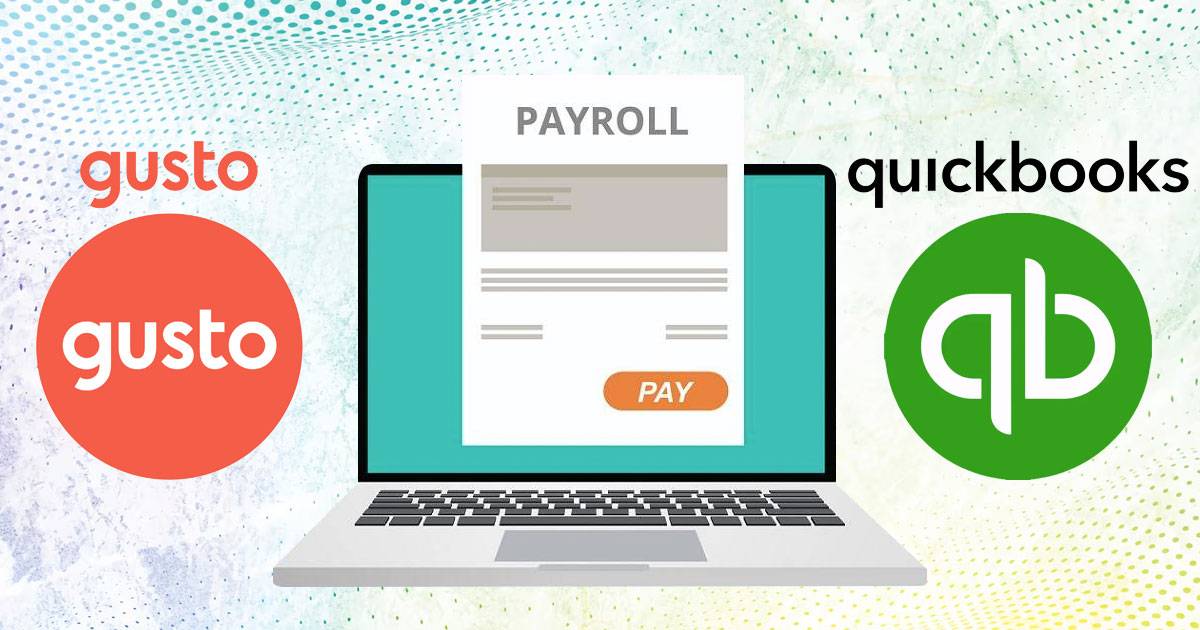Gusto vs. QuickBooks: How to Pick the Right Payroll Service

Choosing the best payroll service for your business can significantly impact how efficiently you manage employee payments, tax filings, and HR tasks. Gusto and QuickBooks are two leading payroll providers that cater to businesses of all sizes, offering streamlined solutions to handle these vital functions. Each service has its strengths, and depending on your company’s specific needs, one may be a better fit than the other. This blog will explore their features, differences, and the benefits of using payroll software.
What Are Gusto and QuickBooks Payroll?
Gusto and QuickBooks are widely recognized payroll software platforms designed to simplify the process of paying employees, handling tax responsibilities, and managing various HR functions. Both systems offer a range of services, including direct deposit, benefits management, and employee portals, to help businesses efficiently manage their payroll needs.
Gusto, launched in 2012, focuses heavily on providing an all-in-one payroll and HR experience. It integrates smoothly with various third-party software and offers more robust HR features than many competitors. QuickBooks Payroll, on the other hand, is part of the Intuit suite of financial tools and is ideal for businesses already using QuickBooks accounting software. It offers a straightforward payroll service but may not be as comprehensive as Gusto when it comes to HR support.
Benefits of Using a Payroll Provider
Using a payroll provider like Gusto or QuickBooks can bring several advantages to your business, helping you save time and reduce human error. Here are five key benefits:
- Time-Saving Automation: Payroll providers automate repetitive tasks like calculating wages, deductions, and tax filings. This frees up time for business owners and managers to focus on other important aspects of their operations.
- Accurate Tax Filings: Both Gusto and QuickBooks help you manage your payroll taxes efficiently. They automatically calculate and file federal, state, and local taxes, reducing the risk of errors and potential penalties.
- Employee Access: Employee portals offered by both platforms allow staff to access pay stubs, tax documents, and personal benefits information at any time. This reduces the need for HR involvement in minor administrative tasks.
- HR Integration: Gusto stands out for its HR capabilities, including onboarding, benefits management, and performance reviews. QuickBooks also offers some HR support, but its offerings are more limited.
- Compliance Support: Staying compliant with labor laws and tax regulations is easier with a payroll provider. Both Gusto and QuickBooks send updates about changing regulations, ensuring your business remains compliant.
Gusto vs. QuickBooks Payroll: Main Differences
Although Gusto and QuickBooks payroll services provide similar basic functions, several factors set them apart. Their differences can help you determine which service is better suited to your business needs.
Starting Price
When comparing the cost of Gusto and QuickBooks, Gusto’s pricing starts at $40 per month plus $6 per employee. This basic plan offers essential payroll features, while higher tiers provide more advanced options like next-day direct deposit. QuickBooks Payroll, on the other hand, starts at $45 per month plus $5 per employee. QuickBooks includes next-day direct deposit even in its most basic plan, which might make it more appealing to businesses that need quicker payment options.
Payroll Features
Both platforms offer direct deposit, automatic tax calculations, and year-end tax forms. However, Gusto excels in HR-related features. It includes tools for hiring, onboarding, and managing employee benefits in all its plans. QuickBooks, while strong in payroll accuracy, offers fewer HR options unless you subscribe to higher-tier plans.
Third-Party Integrations
Gusto integrates with more than 130 third-party applications, including popular tools like Xero, Slack, and Asana. This makes it a great option for businesses using a range of tools to manage their operations. QuickBooks, while offering integrations, is primarily focused on connecting with other Intuit products, such as QuickBooks Online for accounting.
Health Benefits
In terms of managing employee benefits like health insurance, Gusto has a slight edge. It offers health insurance in 39 states and provides 401(k) plans and college savings plans as part of its payroll service. QuickBooks offers health insurance across all 50 states through a third-party broker, but it does not manage benefits as smoothly as Gusto.
Analytics
Gusto provides users with a broader range of reporting options compared to QuickBooks. It offers over 19 customizable payroll reports, including workforce and financial analyses. QuickBooks also offers reporting tools, but these are more limited in comparison and vary depending on whether you are using the online or desktop version.
Employee Portal
Both Gusto and QuickBooks offer self-service portals for employees. Gusto’s portal allows employees to view pay stubs, manage their benefits, and access tax documents. QuickBooks provides similar features, but Gusto’s interface is often praised for being more user-friendly and intuitive.
Ledger Report
Gusto provides detailed payroll ledger reports that are easy to customize and export. QuickBooks Payroll also provides payroll ledger functionality, but users often find Gusto’s reporting to be more robust and easier to navigate, especially for businesses that require more in-depth reporting.
Efficient Payroll Solution for Your Business
Choosing between Gusto and QuickBooks for payroll services ultimately comes down to your business’s unique needs. If you prioritize comprehensive HR tools and seamless integration with third-party applications, Gusto may be the better option. Its wide range of HR features, customizable reports, and easy integration make it ideal for growing businesses. On the other hand, if you’re already using QuickBooks for accounting and need a payroll system that integrates seamlessly with it, QuickBooks Payroll could be the perfect fit. It offers solid payroll functionality and tax compliance support at competitive pricing.
When evaluating Gusto vs. QuickBooks, it’s essential to consider your business size, the level of HR support needed, and your existing software ecosystem to make the right choice for your company.
